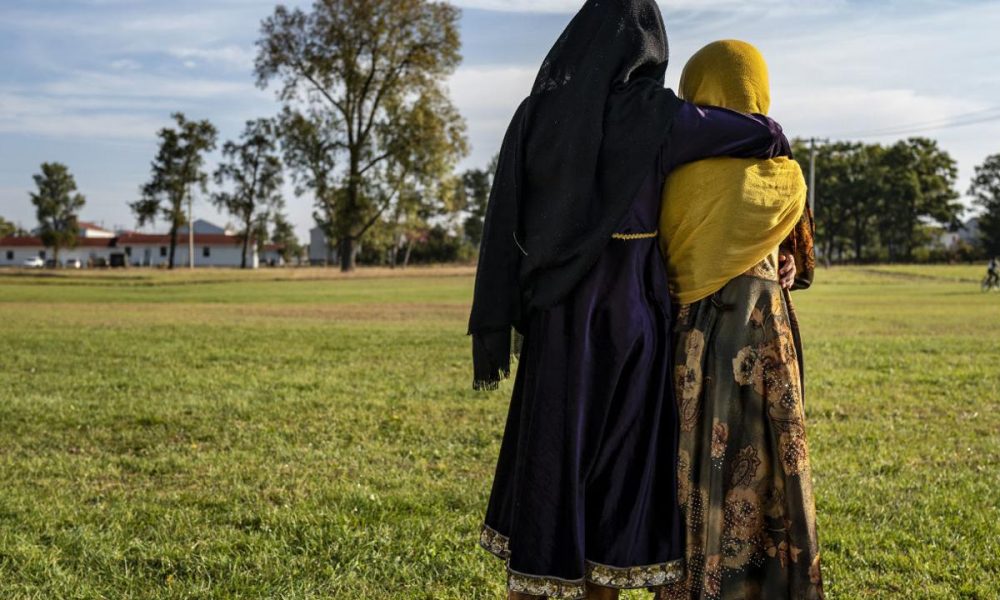The Latest News
Some Afghans Leave US Military Bases Before Resettlement

Two sources who are familiar with the situation told Reuters that something unexpected is taking place at U.S. military bases housing Afghan evacuees. Many of them simply leave before they receive U.S. resettlement services.
It has never been reported that there are 700+ “independent departures”. The phenomenon is alarming immigration advocates who are concerned about the dangers to Afghans who abandon what is currently an open-ended, complex and voluntary resettlement process.
Many evacuees arrived in the United States with temporary “humanitarian parole” status, despite the chaos and speed of the U.S. withdrawal of Afghanistan in August after 20 years of war. After being transferred to U.S. military base, refugees resettlement groups and U.S officials tried to connect them with the services they needed to make their transition to America smooth.
A spokesperson for the U.S. Department of Homeland Security (DHS), declined to comment on the numbers provided by sources but stated that people who left the bases had ties to the United States such as family members or friends and the resources to support themselves.
A spokesperson stated that many of those evacuated were U.S citizens, permanent residents, or had received Special Immigrant Visas, so they were able to leave quickly.
However, leaving too early could mean that other Afghan evacuees lose critical benefits like expedited work permits and cause a host of legal problems in the future due to the complexity of the U.S immigration system.
“It’s a giant can of worms,” said one U.S. Citizenship and Immigration Services official, who spoke on condition of anonymity.
“This could lead to years and years of terrible immigration status problems.”
So far, the benefits that evacuees received were less than those offered to refugees. Congress passed legislation on Thursday, despite Republican opposition. It would provide Afghan evacuees with the same assistance that refugees receive.
“We should do everything in our power to help our Afghan allies get off to a strong start in their new homes,” Democrat Senator Jeff Merkley said in a statement.
New legislation states that Afghan asylum applications must be processed quickly. However, those who depart the U.S. bases before their deadlines may not receive all the legal guidance they need to start their applications.
ONE-WAY TRIP OFFBASE
Experts in immigration say Afghans who flee the bases do not violate U.S. laws, and that military personnel have no legal authority over law-abiding Afghans at any of the eight locations housing 53,000 Afghans who fled Taliban rule on U.S. evacuation flights.
According to sources, the scale of independent departures varies from base to base. There are more than 300 at Fort Bliss, Texas. This figure is sure to alarm both supporters and opponents of the massive U.S. resettlement operation.
Officials from the United States stress that all Afghans who leave U.S. bases have been through security screening prior to arriving in the United States. Independent departures pose a risk to Afghans.
Reuters viewed a document called “Departee information” that was meant to warn Afghans who might be considering leaving the country before they have completed their resettlement. They are reminded that they can obtain their visa paperwork and cash at the base to pay for travel to their destination in America.
“Once you leave this base, you forfeit these advantages and may not return,” it reads.
Margaret Stock, an immigration lawyer with expertise in cases related to the military, said the warning was not ill-intentioned.
“I think they’re trying to look out for people,” she said.
“The people managing the bases are rightfully concerned that somebody might not be fully aware of the consequences of wandering off.”
Afghans leaving U.S. military bases can pose a problem in certain parts of Afghanistan, especially given the media coverage at Fort McCoy in Wisconsin and Fort Bliss in Texas.
But General Glen VanHerck, head of Northern Command, pushed back on the idea that criminality was a problem on the U.S. bases. He told Pentagon reporters on Thursday that the numbers of incidents involving robbery and theft were substantially lower than in the general U.S. population, with only eight cases in six weeks.
VanHerck stated that the main limiting factor for Afghans being processed for resettlement was not security checks or vaccinations against measles.
It was instead U.S. officials who made efforts to ensure that “each Afghan guest has a great place for landing and have assurances about where they will relocate to.”
“So I understand that, right now, is the limiting factor on output,” he stated.